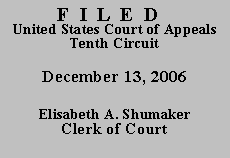

| RICHARD OTTO HANSEN,
Plaintiff-Appellant, |
|
| v. | |
| FEDERAL BUREAU OF PRISONS, A.
JOLLY, J. BLANK, D. NELSON, and M.
SIMMONS,
Defendants-Appellees. |
|
Plaintiff Richard Hansen, a federal prison appearing pro se, appeals from the district court's dismissal without prejudice of his civil rights complaint. We exercise jurisdiction pursuant to 28 U.S.C. § 1291 and affirm.
On March 16, 2006, Hansen filed a civil rights complaint against the Federal Bureau of Prisons and four prison officials under Bivens v. Six Unknown Named Agents of Fed. Bureau of Narcotics, 403 U.S. 388 (1971). In his complaint, Hansen alleged that the individual defendants had refused to accept delivery of various legal materials that were sent to him by a family member. Hansen further alleged that these materials related to several pending lawsuits that he had filed. Hansen requested compensatory and punitive damages, declaratory relief, and injunctive relief directing defendants to retake possession of the legal materials and, at their own expense, have them delivered to Hansen.
On May 25, 2006, the magistrate judge assigned to the case issued an order directing Hansen to file an amended complaint within thirty days. In doing so, the magistrate judge concluded that (a) the Bureau of Prisons was not a proper defendant in a Bivens action, (b) Hansen had failed to include factual allegations in his complaint demonstrating each of the individual defendant's personal participation in the alleged constitutional violations, (c) there was no indication in Hansen's complaint that he had exhausted the Bureau of Prison's administrative grievance procedure with respect to the allegations set forth in his complaint, and (d) Hansen had failed to provide the district court with sufficient copies of his complaint to serve each of the named defendants. Accordingly, the magistrate judge directed Hansen that his amended complaint should address each of these deficiencies, and placed Hansen on notice that if he failed to take the action required his case would be dismissed.
Rather than complying with the magistrate judge's directive, Hansen filed on June 15, 2006, a purported notice of appeal from the magistrate judge's order. On July 10, 2006, the district court issued an order dismissing the action without prejudice due to Hansen's failure to comply with the magistrate judge's order. On July 18, 2006, Hansen filed a notice of appeal from the district court's order of dismissal.
Reviewing the district court's order de novo, see Jernigan v. Stuchell, 304 F.3d 1030, 1032 (10th Cir. 2002), we conclude the district court properly dismissed Hansen's action without prejudice. It is well established that a plaintiff seeking to assert a Bivens claim must first exhaust all available administrative remedies. E.g., Yousef v. Reno, 254 F.3d 1214, 1216 n.1 (10th Cir. 2001). A complaint "that fails to allege the requisite exhaustion of remedies is tantamount to one that fails to state a claim upon which relief may be granted." Steele v. Fed. Bureau of Prisons, 355 F.3d 1204, 1210 (10th Cir. 2003) (internal quotation marks omitted). An inmate must not only adequately plead exhaustion, but must also attach copies of the "applicable administrative dispositions to the complaint." Id. (internal quotation marks omitted). Here, Hanson failed to fulfill either of these requirements, and indeed failed to respond at all to the magistrate judge's show cause order.
Although Hansen now contends that the exhaustion requirement was effectively satisfied because prison officials previously indicated that Hansen would be allowed to receive his legal materials, we disagree. According to the record on appeal, that concession was allegedly made in the context of a prior legal proceeding filed by Hansen after he was released from a Nebraska state prison and placed into federal custody. Assuming, for purposes of argument, that such a concession was made, it does not address the specific circumstances alleged in Hansen's complaint, i.e., the alleged refusal of specific prison officials to accept delivery of the legal materials. We have previously noted that "[d]eveloping the factual record through administrative review is particularly important in pro se prison litigation, where exhaustion serves the same purpose and is very similar to discovery in ordinary litigation." Simmat v. U.S. Bureau of Prisons, 413 F.3d 1225, 1238 (10th Cir. 2005) (internal quotation marks omitted). That principle clearly applies here, where the precise facts underlying Hansen's complaint remain undeveloped. Accordingly, we conclude that Hansen must exhaust all available administrative remedies before pursuing his Bivens action.
AFFIRMED. Hansen's motion to pay the appellate filing fee in partial payments is DENIED and Hansen is ordered to make immediate payment of the unpaid balance due.
Entered for the Court
Mary Beck Briscoe
Circuit Judge
*. This order and judgment is not binding precedent, except under the doctrines of law of the case, res judicata, and collateral estoppel. It may be cited, however, for its persuasive value consistent with Fed. R. App. P. 32.1 (eff. Dec. 1, 2006) and 10th Cir. R. 32.1 (eff. Jan. 1, 2007).